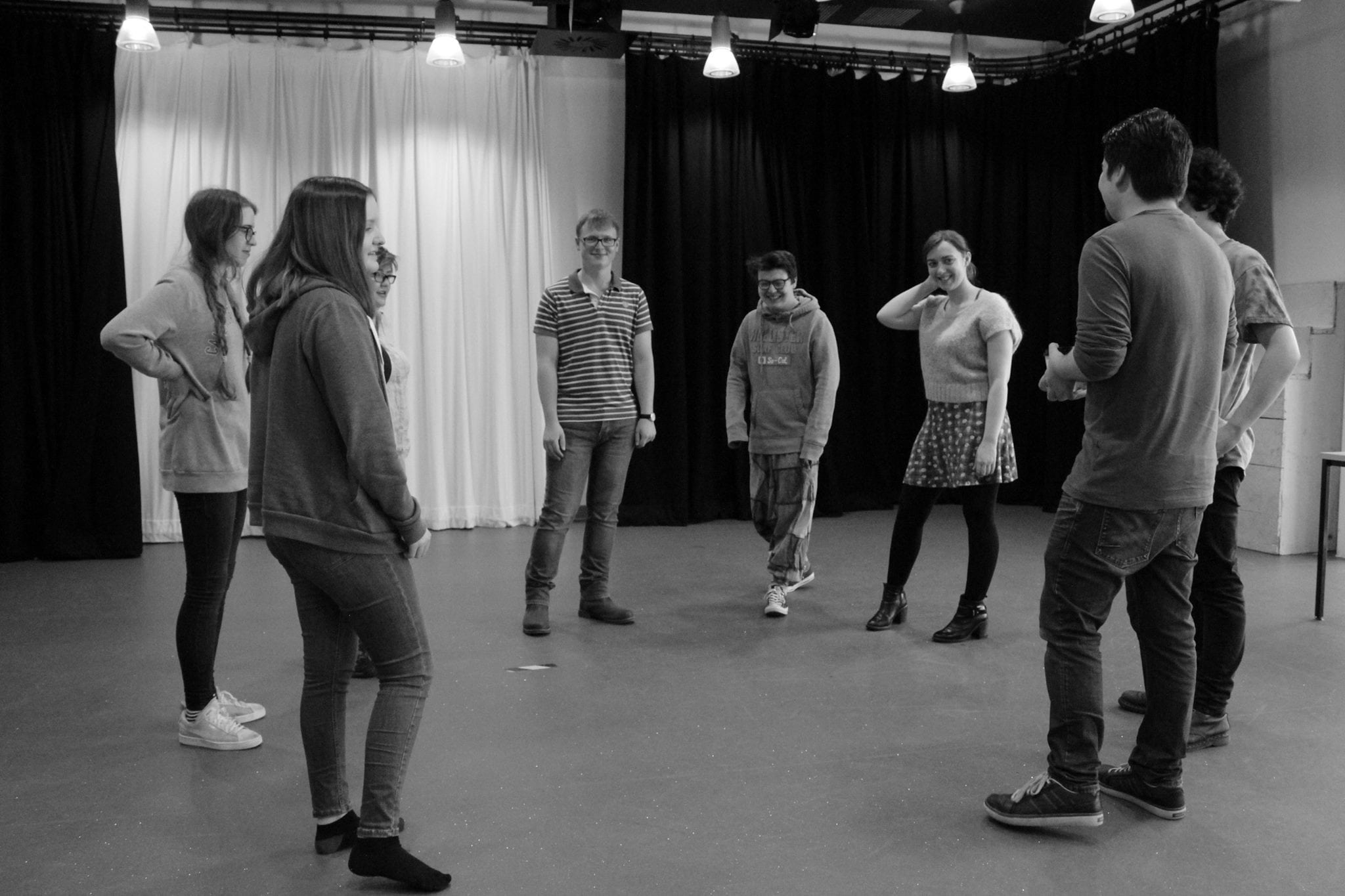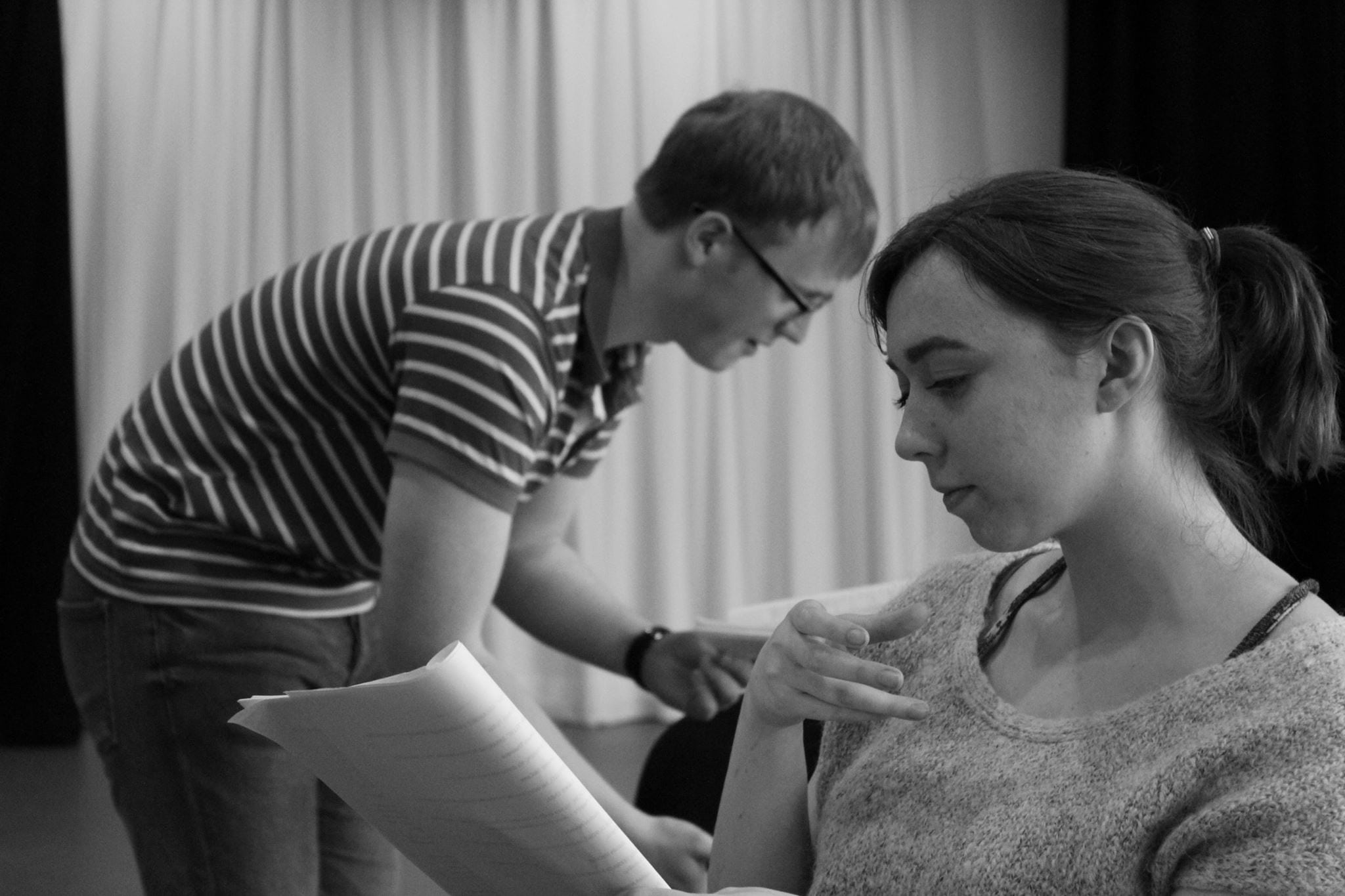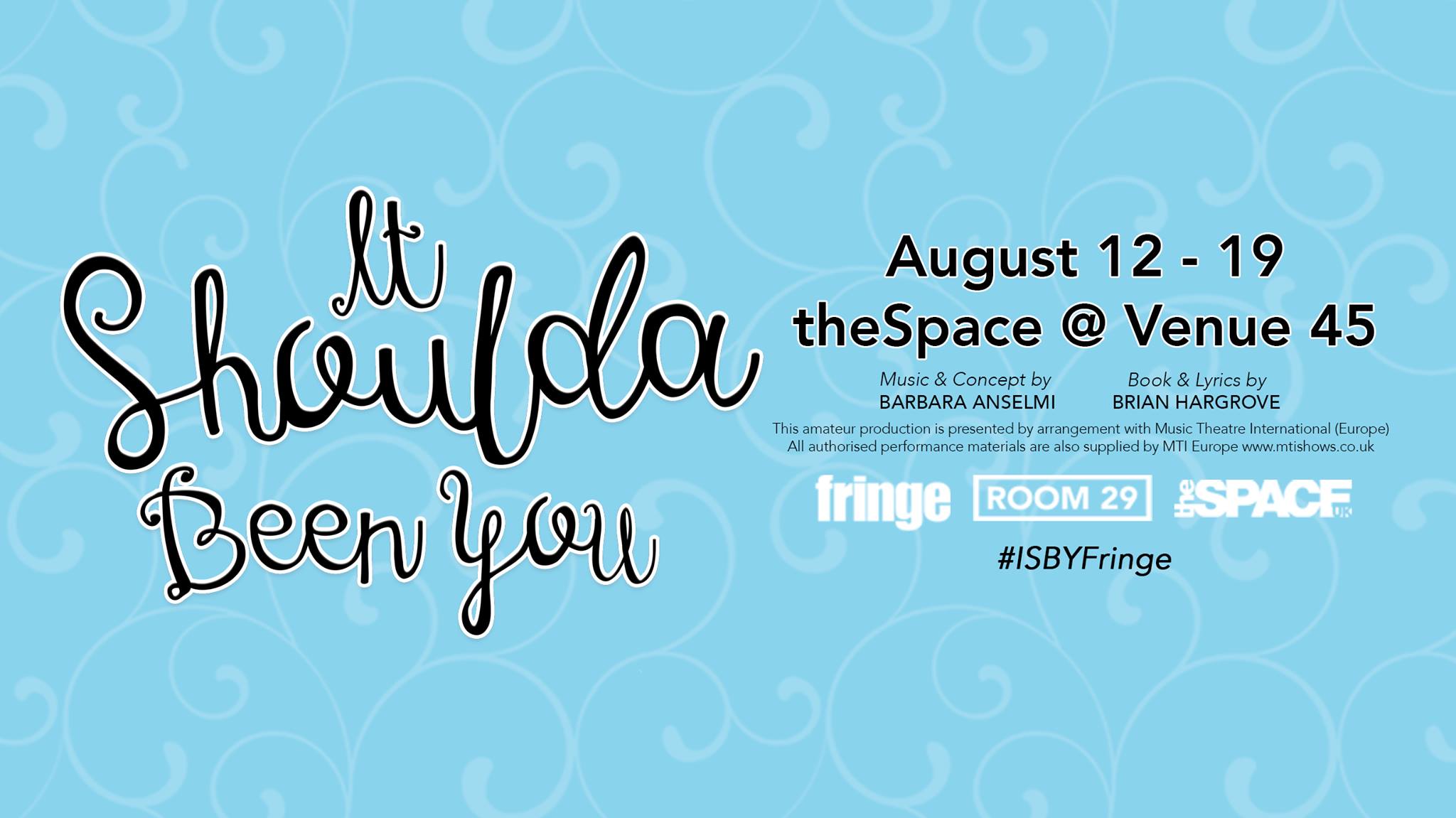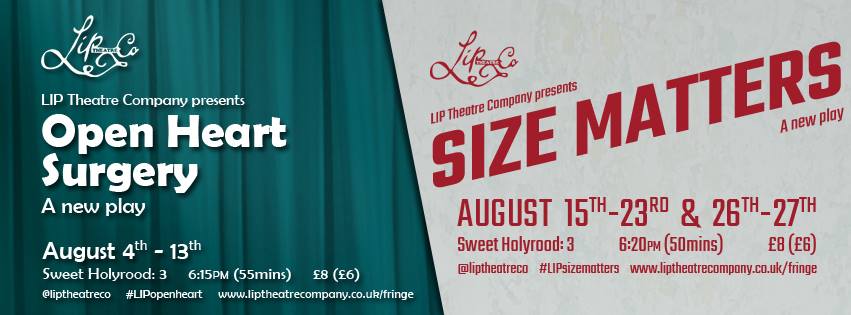Bringing Dundee to the Fringe
Every year thousands of visitors descend on Edinburgh to enjoy the worlds largest performing arts festival, and this year is no different as the Fringe turns 70. The chance to perform at the Fringe, despite how large it is, is a rare experience and often comes with its own set of challenges. This year visitors to the festival will be able to enjoy a range of events put on by University of Dundee staff, students and societies.
Lip theatre company, the university’s only student led drama society will be performing for the 21st year as they take two new plays, written by students especially for the Fringe. Open Heart Surgery written and directed by Lip President, Rob Curry, and Size Matters written and directed by society member, Ewan Gray.
New company Room 29 theatre, founded by student Neil Lavin and graduate James Leggat, will perform It shoulda been you – which will be the Broadway musicals European debut. The multi-talented cast is made up of students and graduates from a range of Scottish universities and for many will be the first time they perform at the Fringe.
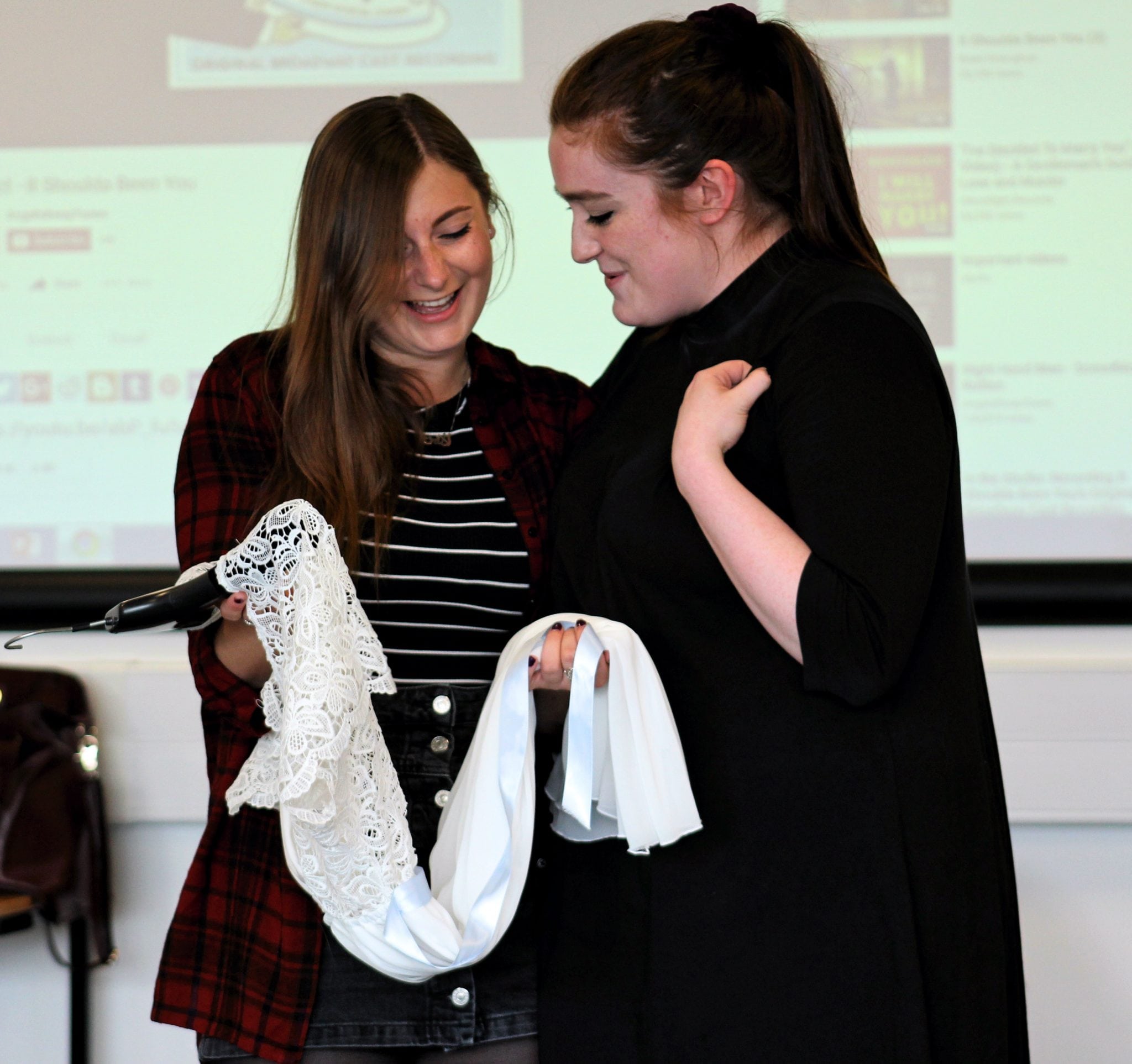
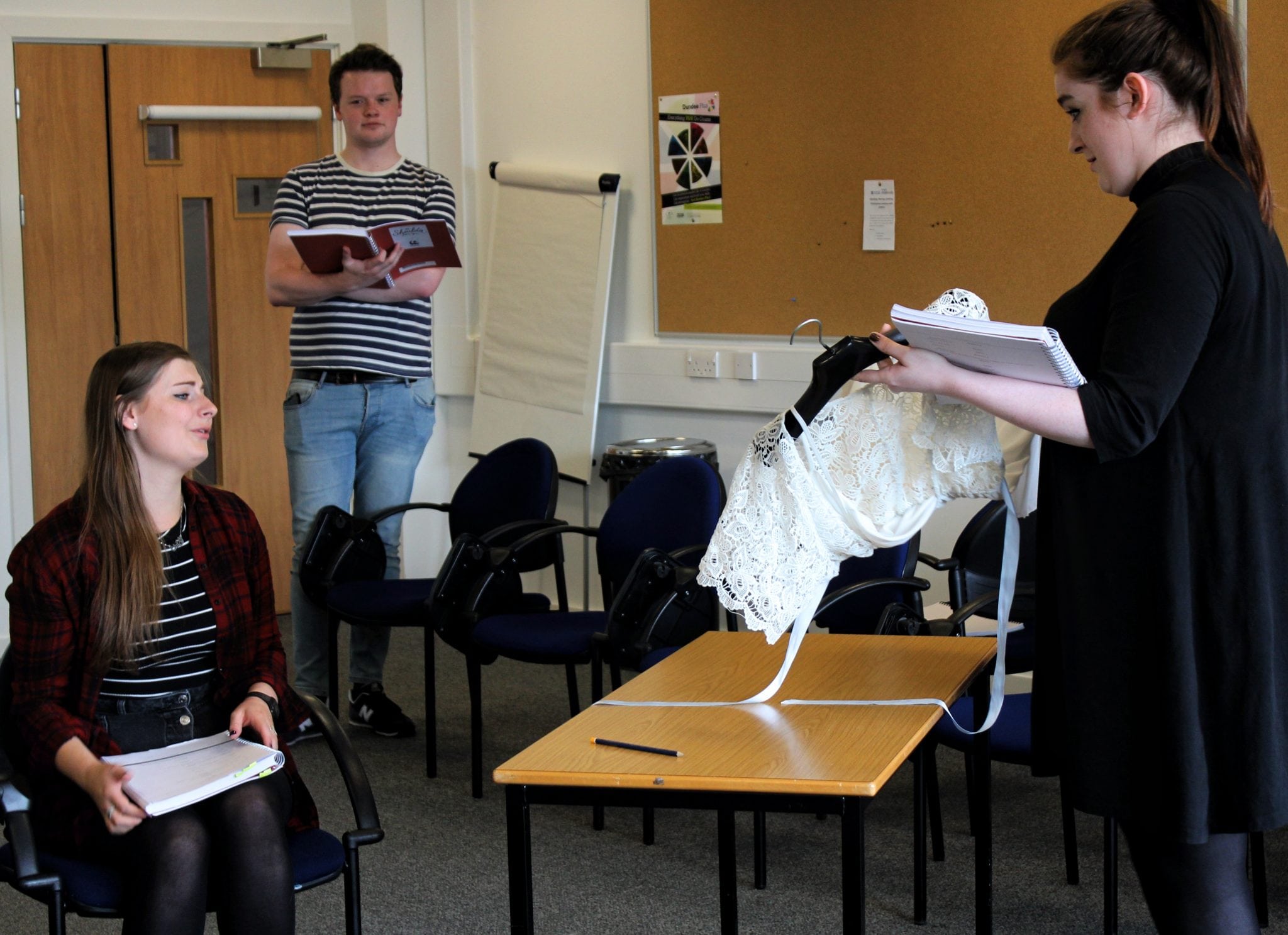
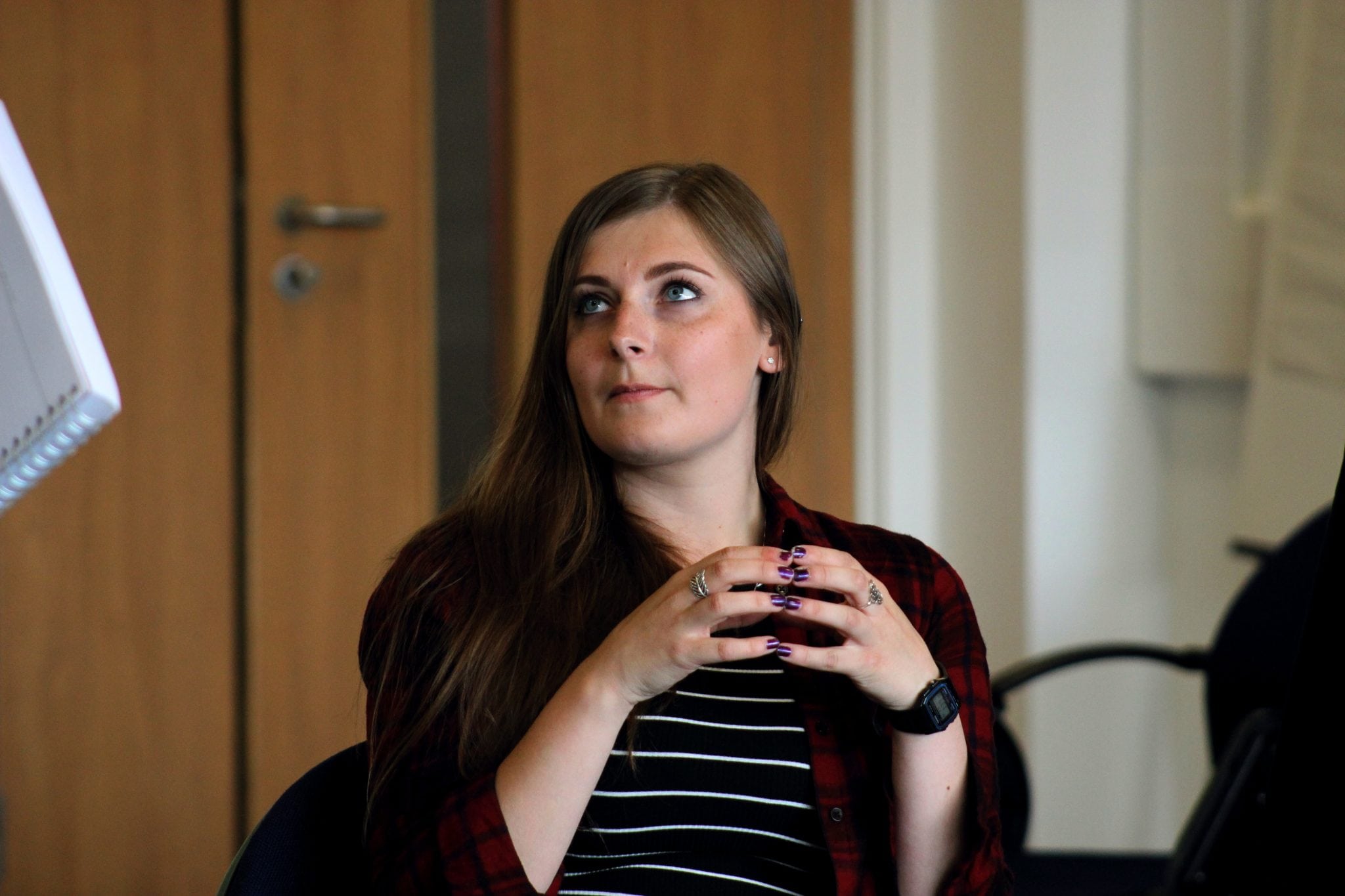
It Shoulda Been You – Room 29 Theatre
August 12-19, the Space (Venue 45)
It Shoulda Been You is a musical comedy and focuses on the wedding of Jewish bride Rebecca and her Catholic groom Brian, the perfect wedding Rebecca had been planning soon begins to unravel.
Friday 7th July, and director Neil Lavin and cast members Elayn and Marnie are in rehearsals for the first time, Elayn and Marnie play sisters Rebecca and Jenny who are preparing for Rebecca’s wedding. In the scene, Jenny settles Rebecca’s wedding jitters through their duet ‘Perfect’. It is the first time that the two are singing the song together, although both admitted to practised and listened to the song on repeat in their own time once discovering who they would be playing.
The experience is full of firsts for the cast: the first time the musical is performed in Europe, the first show for newly founded Room 29 Theatre (and first time at the Fringe) and the first time many of the cast will appear at the Fringe.
What made you choose this musical for the first show by Room 29 Theatre?
Neil Lavin (NL): James (Leggat) and I had been looking at a lot of shows, and although we had not seen It Shoulda Been You live, we had happened to see a recording of it. We knew that there had been a buzz about it and that it had a good twist within the plot. After looking at a few more shows, we found we kept coming back to this one. It’s funny, current, got a message and is an ensemble performance.
What attracted you to audition for the show?
Elayn Fraser (EF): I knew I wanted to be involved and wanted to be at the Fringe. It’s a new company and a never before seen show so I knew it would be open minded.
Marnie Yule (MY): It was the characters journey for me. The characters down come to terms with their actions but they become more confident, which is something that I had never seen in this situation or approached in the same way in a musical.
NL: It’s a big balls musical about people, relationships and is a 13 character strong ensemble so it’s a pretty exciting show to do.
What did you find challenging about the show?
NL: Compared with big shows such as Heathers, a show that the University of Dundee Operatic Society (OpSoc) put on last year which many of the cast were involved in, the time spent with each of the actors during rehearsals and the ability to focus on the character development is greater with It Shoulda Been You. This was something new for me as a director and new for the actors.
A challenge for me was that this show is on the round, while typically shows I have done through OpSoc have been proscenium staged, while this is on the round and means that we have to be aware of the audience on three sides when we perform and ensure that everyone can see.
You are just starting the rehearsal process, what are the plans?
NL: We started the rehearsals on the 1st July, but it isn’t until later in July when we run an intensive three-week rehearsal programme, where we will be learning the songs, dancers and choreography.
EF & MY: It will be great fun as everyone will be in together and rather than in their own rehearsals so it will feel like a professional production and more like an ensemble.
EF: Being involved in a musical is great because you can familiarise yourself with the music before hand, especial if it is a Broadway show. And the soundtrack for this show included much of the dialogue so it also helped to know the script.
What are you most excited for at the Fringe?
EF: The intensive rehearsals is what I’m looking forward to the most, as it will be completely different and the excitement of it being my first time appearing at the Fringe.
MY: I’m excited about the atmosphere at the Fringe, it’s a great place which comes alive and thrives during the festival.
Finally, why should people come see your show?
NL: It’s an important message that we want to show, but doesn’t take itself seriously.
Open Heart Surgery and Size Matters – LIP theatre company
OHS – August 4th to 13th, SM – 15th 23rd/26th -27th (Sweet Holyrood, Venue 94)
Open Heart Surgery tells the story of a conservative relationship counsellor named Sandra. Business is bad, and with the bills mounting, Sandra is forced to take on the only troubled partnership at her door: Will and Leo, her first same-sex couple.
Size Matters, meet Jim Arrandale, once a household name (OSCAR winner don’t you know) now though, the famous and talented don’t want to work with him. Why? He’s a d*ck. Simple as. Jim strikes gold, however, when he’s given the chance to star in the West End’s next big play. The problem? He has the smallest part.
Media Officer Katie met with Lip President and Open Heart Surgery writer/director Rob Curry and Size Matters writer/director Ewen Gray to discuss the plays and what it means to Lip to be appearing at the festival for their 21st year.
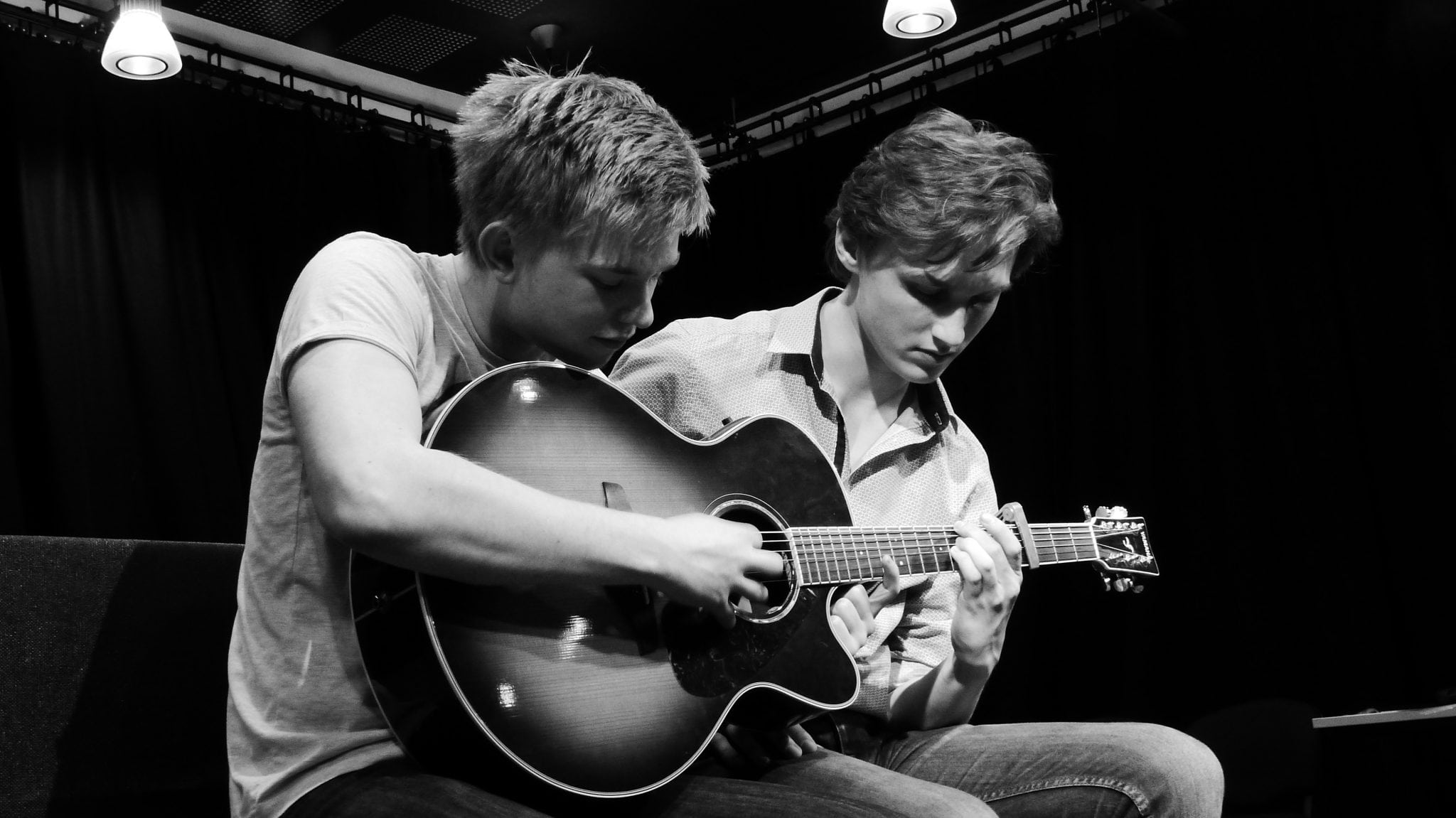
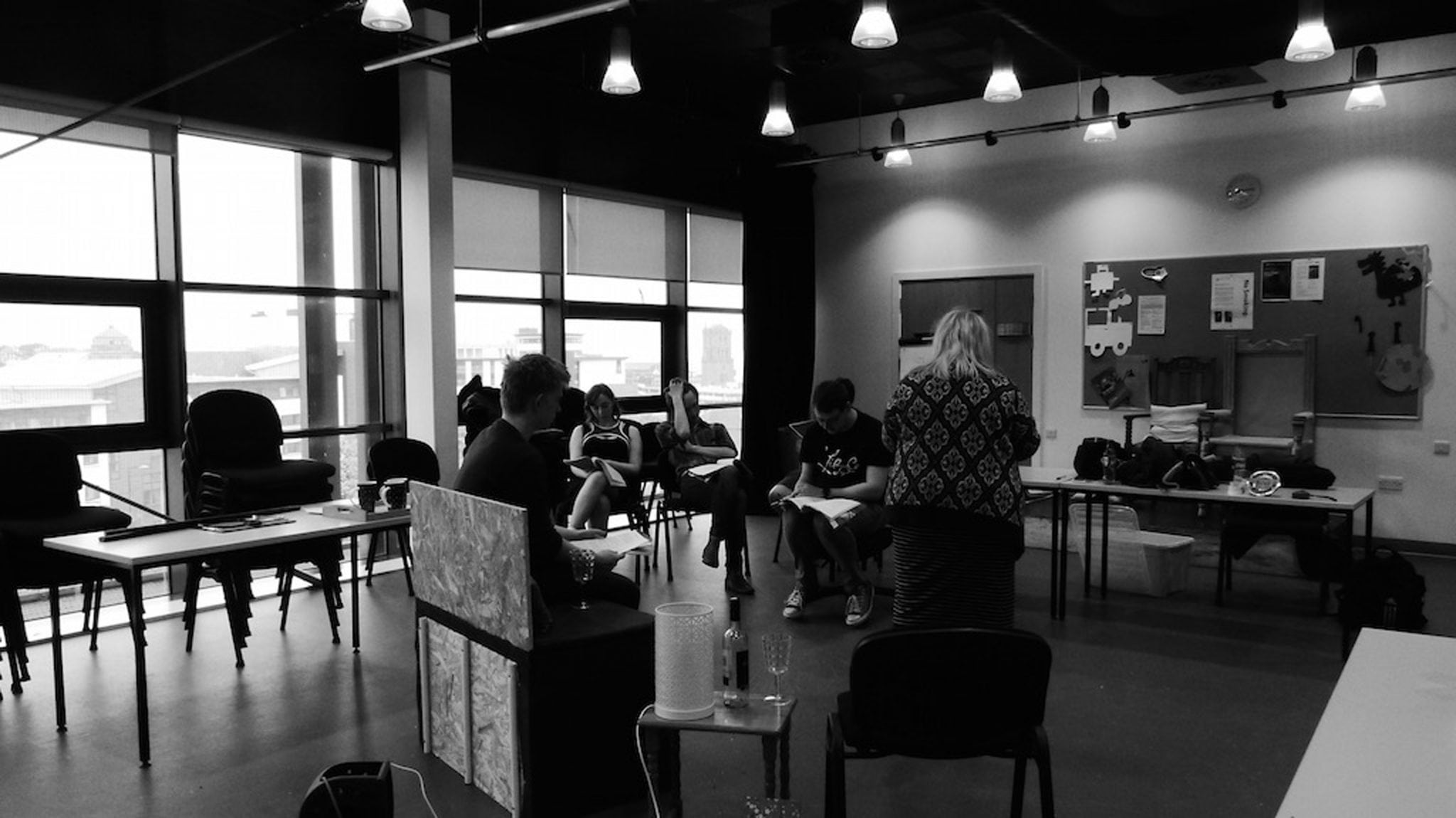
Both plays are new shows, written by yourselves, is this part of a tradition with LIP and the Fringe? Why two new shows?
Rob Curry (RC): LIP as a company has historically taken new shows, and has since we started going to the Fringe in 1996. So we have a long proud history of always bringing new drama.
The plays Lip performs at the Fringe are new plays, it gives members the opportunity to get the experience of writing for the Fringe, we have a very talented group of writers, directors, actors and stage tech.
What does the Fringe mean to Lip?
RC: We’re very lucky that we get the support from DUSA to go to the fringe every year. Something we’re very proud to be able to offer as an opportunity to people that are members of the society. This is the time in your life to be trying new things and to experiment and be bold.
Ewen Gray (EG): We’ve all got such different ideas and it’s not like we’re bring so much of same jokes back each year. We’re bringing something new.
What are the challenges of taking the show to the fringe?
RC: How long have you got? We’re very lucky because the people running Sweet venues, the place we’re performing and have been for that last few years, they people who run that are old members of Lip. We have a very good relationship with them and that means we have a great amount of support when we go to Edinburgh. That said, there’s still booking the venues, arrange rehearsal time for everybody who have all got different schedules…
EG: Getting the flat for the month is always tricky
RC: The flat is especially hard because you’re trying book the accommodation before you even know for certain how many people are going.
EG: We need make sure it’s cheap enough but it’s also big enough.
RC: And sometimes, when it comes to the Fringe even just getting the script locked down in a good time, it’s tricky. But, for all that there are challenges, that’s part of the joy of it as well.
EG: It keeps you on your toes, you’re not so lethargic in the process, you are always just ready. It keeps just going, it’s motivation really.
RC: And it’s a great thing to put on your CV at the end of the day. Essentially, we all work together to produce these shows and make sure that everyone’s got costumes, make sure that the backstage is all sorted in good time and tech rehearsals are planned, just all sorts. It’s a challenge worth doing.
Why should people come see your shows?
RC: Open Heart Surgery is a tense relationship drama, which touches on conflict, LGBT themes and tries to answer the questions why do we stray in relationships? And is it right that we do?.
EG: Size Matters is a funny comedy, dealing with the inner workings of theatre. Where egos clash in an absurd and farcical manner… and it’s filled with innuendos.
RC: The thing I love the most about the two plays that were taken, is that they are so different and that’s just a really nice thing to be able to bring. Two wildly different plays.
What are your favourite plays that you’ve taken to the Fringe?
RC: This is the first time I’ve gone to the Fringe but Ewan was in plays that we took last year.
EW: So the one we did last year was The Gorgon Girl and In Defence of Hitler. Which were both fun to do and again so wildly different. Gorgan was more serious and injected humour into it to lighten it. Whereas, in defence was a farcical philosophical comedy that just all about friendship. That was just great fun to flyer down the mile. The line I always do: “do you want to see a play about friendships, time travelling and love”. Then people be like oh yeah, okay and then I hand the flyer to them and they’re like right, okay, you need to explain yourself.
RC: We did get some reactions, there was one day that we went into the venue and they’ve graffitied on one of the posters for In Defence of Hitler, ‘Is fascism a price worth paying for pr’. And it’s exactly the type of person that the show was written for. There was another one that said ‘what ever happened to hate crime laws?’.
EG: Because people just automatically judge at face-value.
RC: Let me tell you, as a title it got a lot of attention. The Guardian picked it up in their 20 things they noticed going through the Fringe. We got a lot of bums on seats, we had a 60 seat venue for that. There was one night there were 57, pretty much sold-out. We learnt a lot about marketing that year as well. Because Gorgon was not a kid’s show, it was talking about a Greek myths that talked about rape and stuff like that. But people though it was a kids show.
EG: Hitler never made it to the mile.
RC: Yeah, we were not allowed to flyer in costume for Hitler. That was a condition. Funny history about Lip. It’s not the first play about Nazi’s taken to the Fringe. I think in ’98, we did a play called ‘Achtung Pal’. Which was an alternative future were the Nazi’s had won the war and it was set in Dundee.
That’s what the Fringe is about for a lot of us. It’s a learning experience and it’s a once in a lifetime opportunity to go because it’s so expensive. It’s difficult to do without the financial support that we get. It’s good to be able to give that back into the society for future years.
EG: It’s wonderful to being able to perform every day for a month. People come and actually see you, people enjoy watching you and it feels so professional. It’s fab.
Do you feel that the Uni had given you that?
RC: It would be impossible without the funding that we get from DUSA. So we’re really grateful for that.
What are you looking forward the most at the Fringe?
RC: Room 29 a nice big musical. That should be fun.
EG: The best thing to do, is walk into a venue and say can I get a ticket for the next show please. You have no idea what’s it going to be, you walk into something with absolutely no expectations, you just sit down and watch something. Granted sometimes, ah you just wasted money but by doing that I saw two of the best shows.
RC: What I’m most looking forward to is just the intensity of the experience. It’s a bunch of us that are going to be living in a flat and spending a lot time together. Also, not just us, our company, going but I think in the venue, you get a real sense of community with the other shows you’re performing alongside. Nowhere in the world that you can go to that you can have such access to new people, new ideas and that much creativity.
Describe in one sentence about the shows.
RC: It’s a tense, relationship drama that touches on conflicts, LGBT themes and tries to answer the question about why stay we stay in relationships and whether it’s right that we do.
EG: It’s a comedy, a funny comedy at that, which deals with the inner workings of theatre were egos clash in an absurd and farcical manner and also filled to the brim with innuendos.
